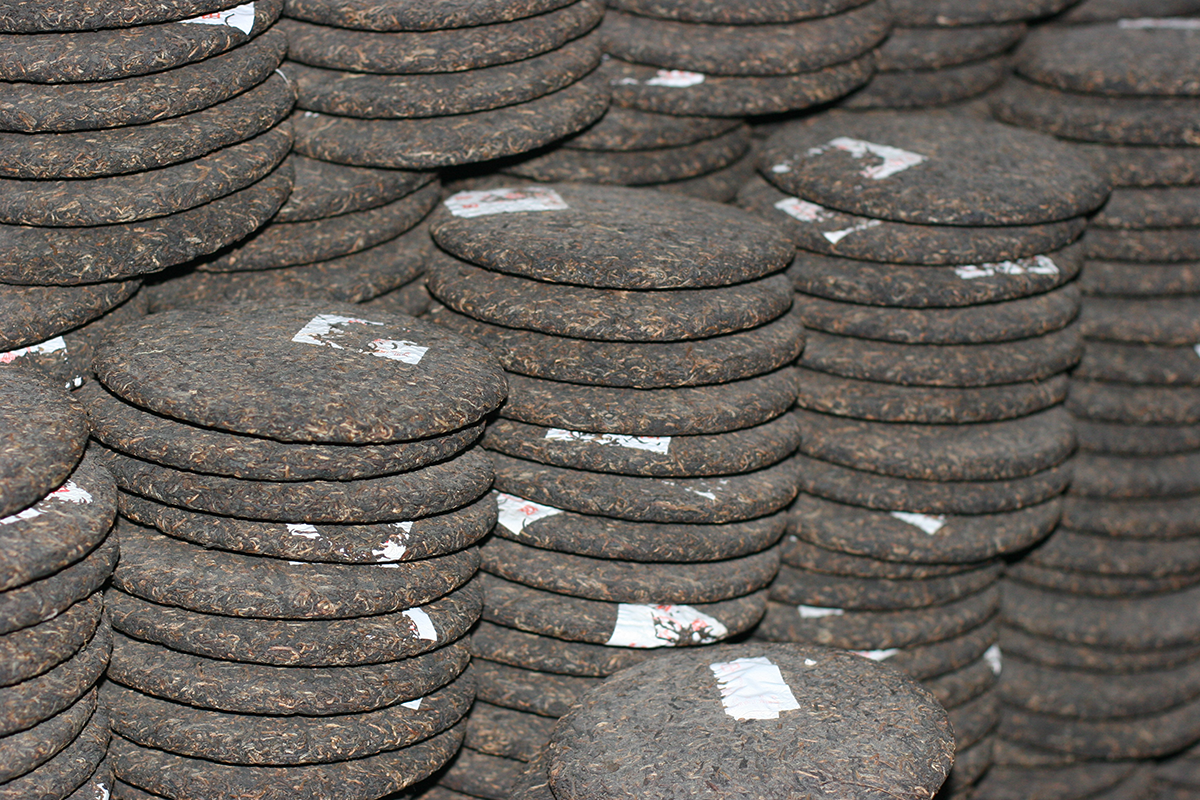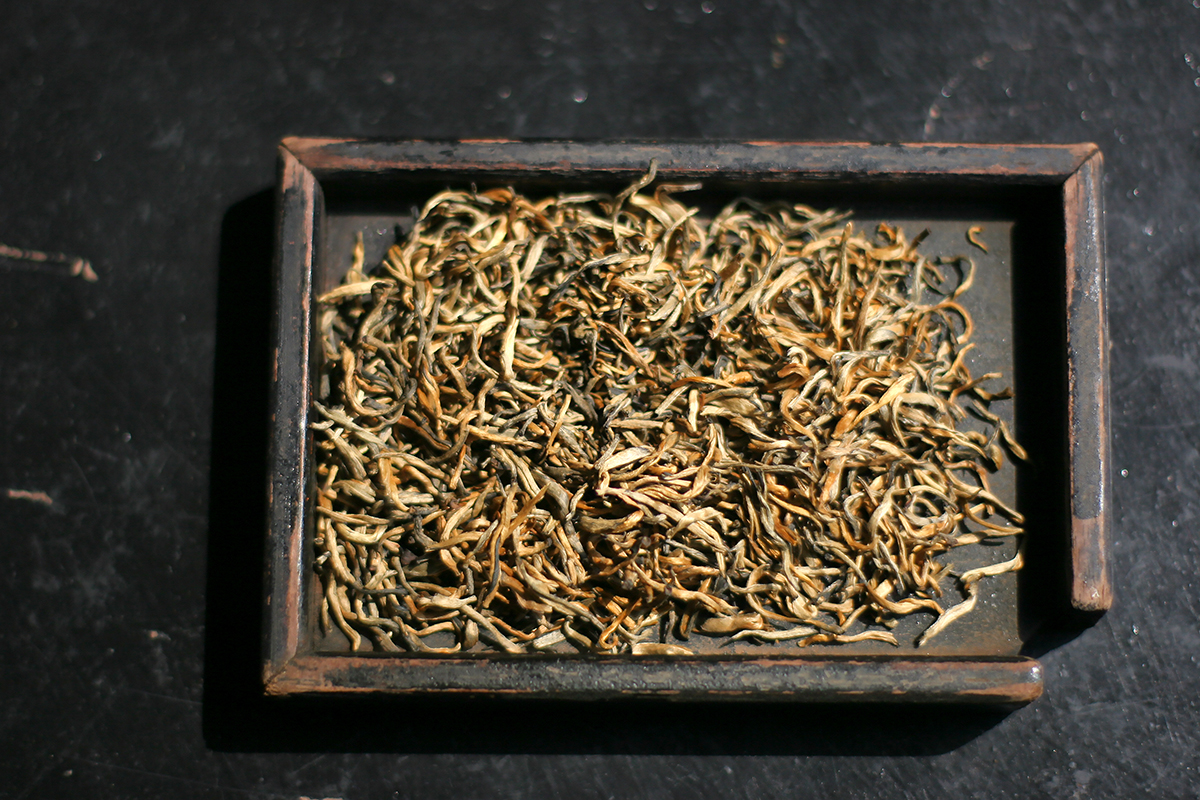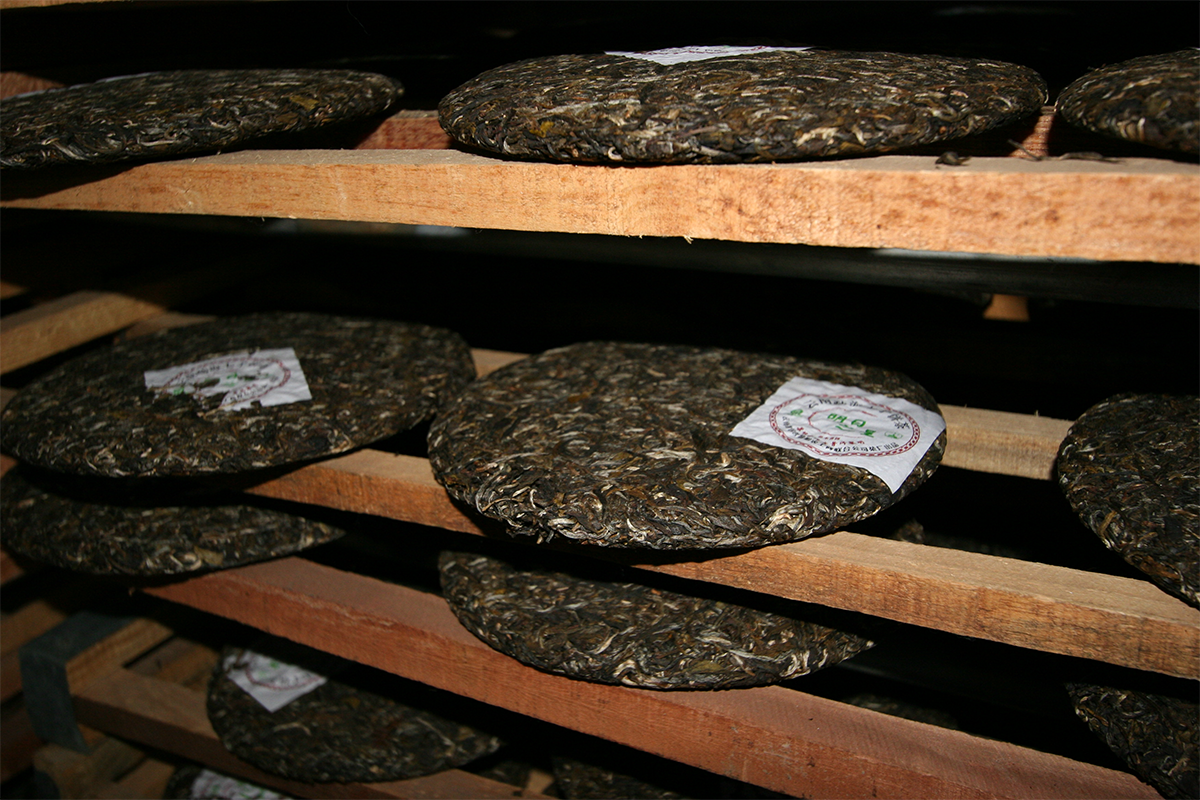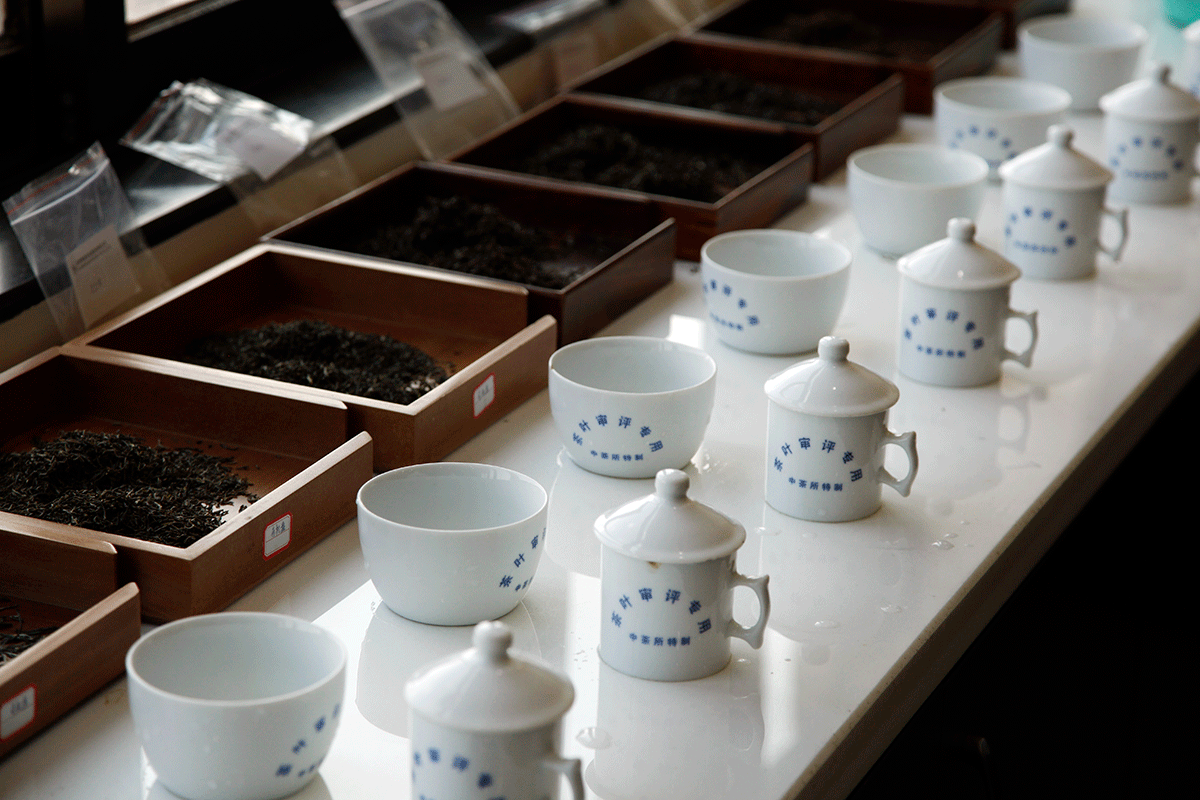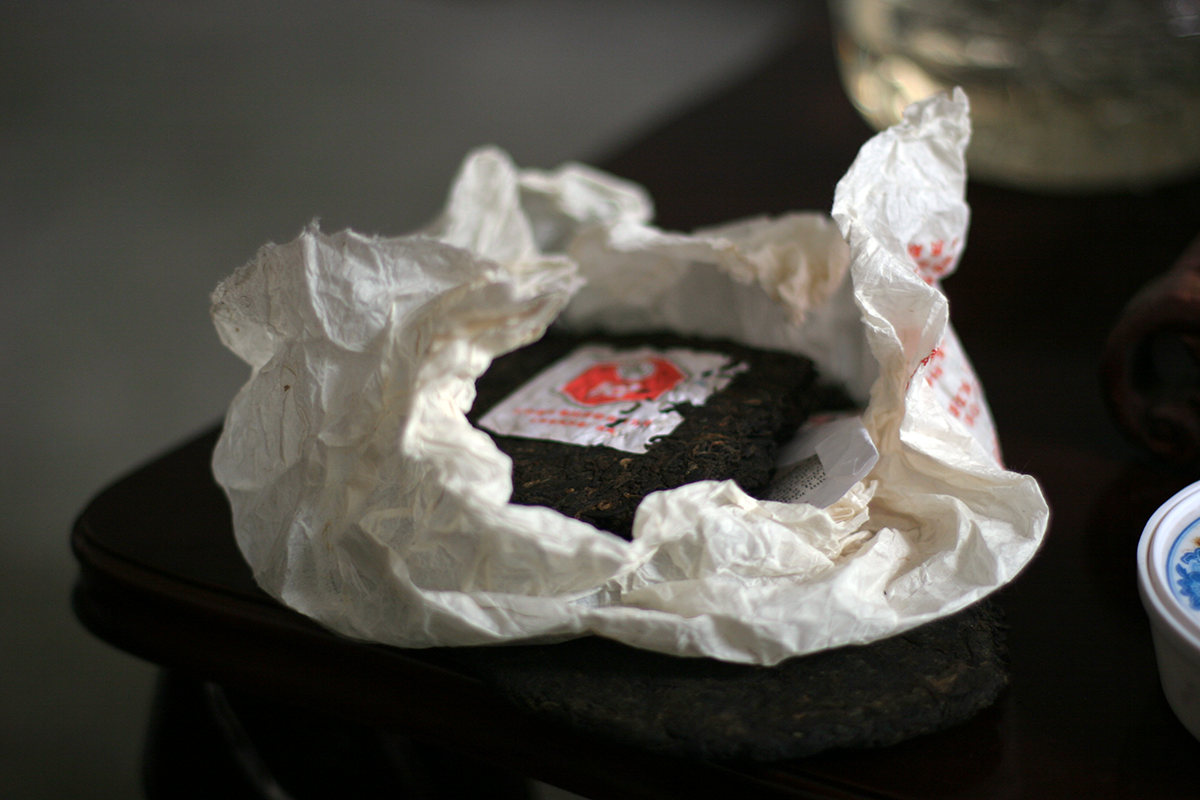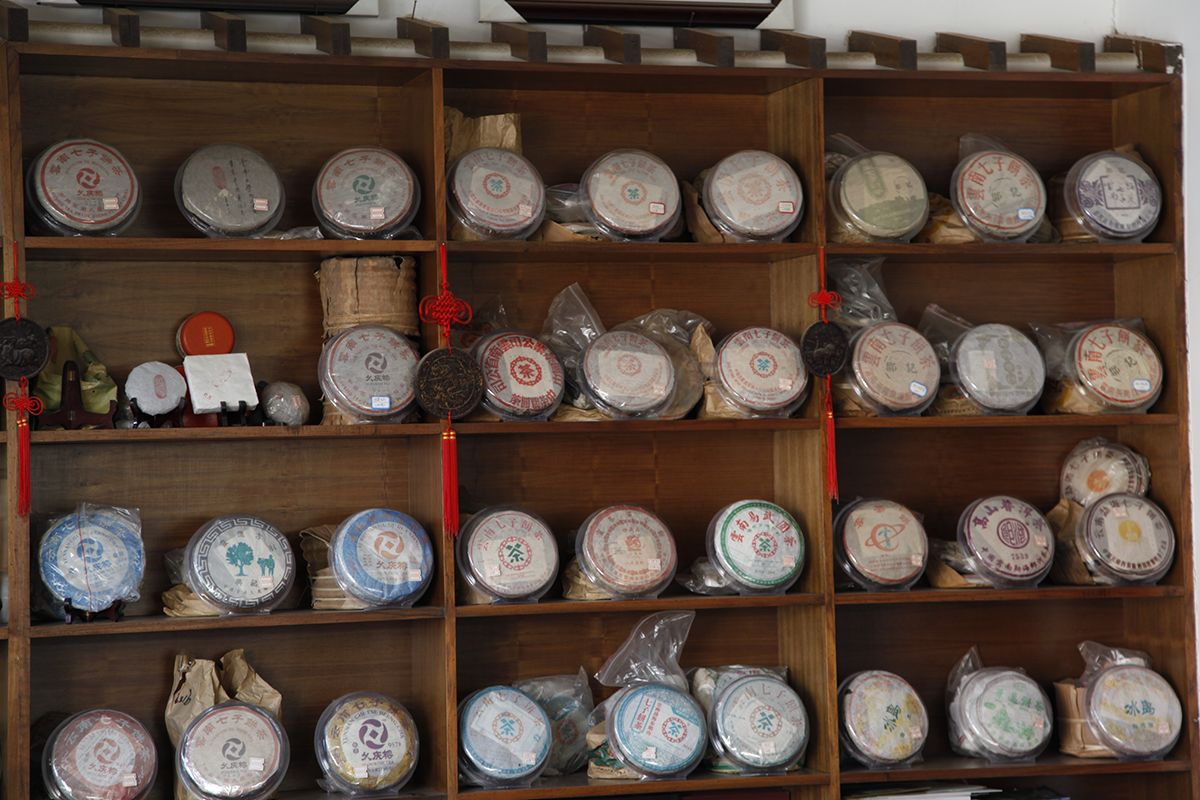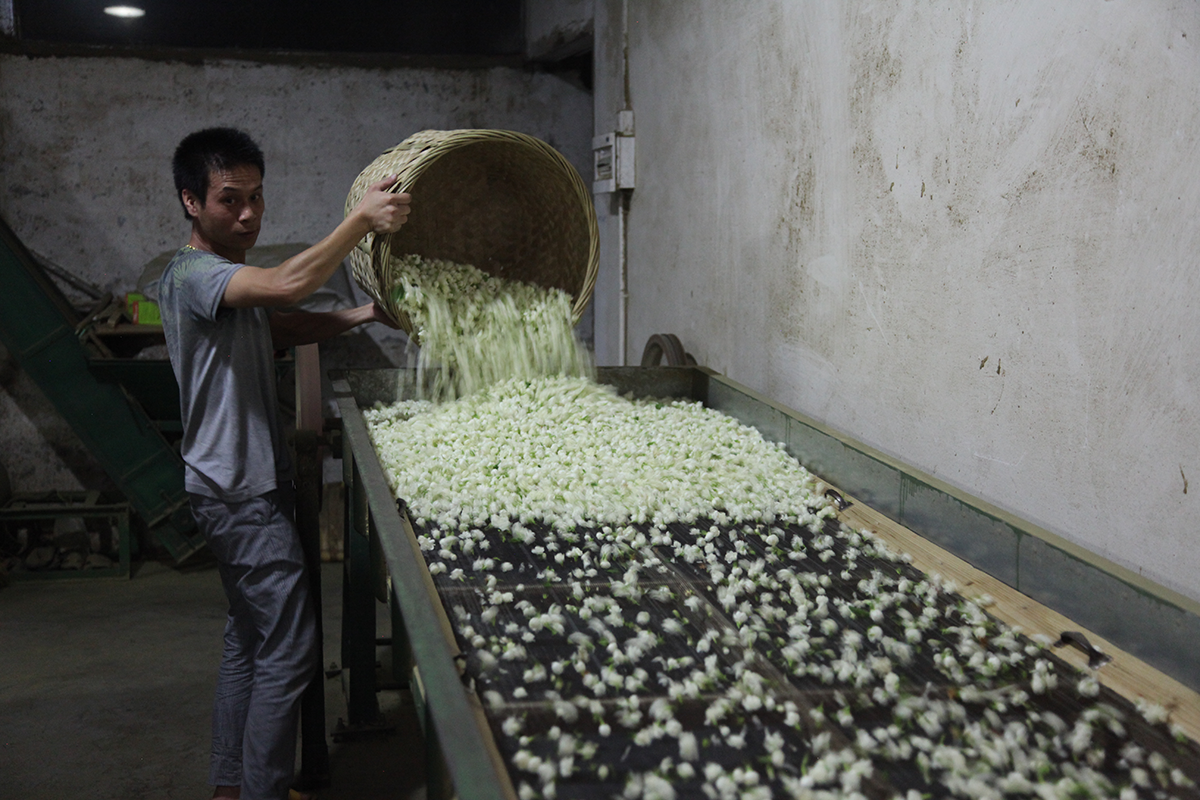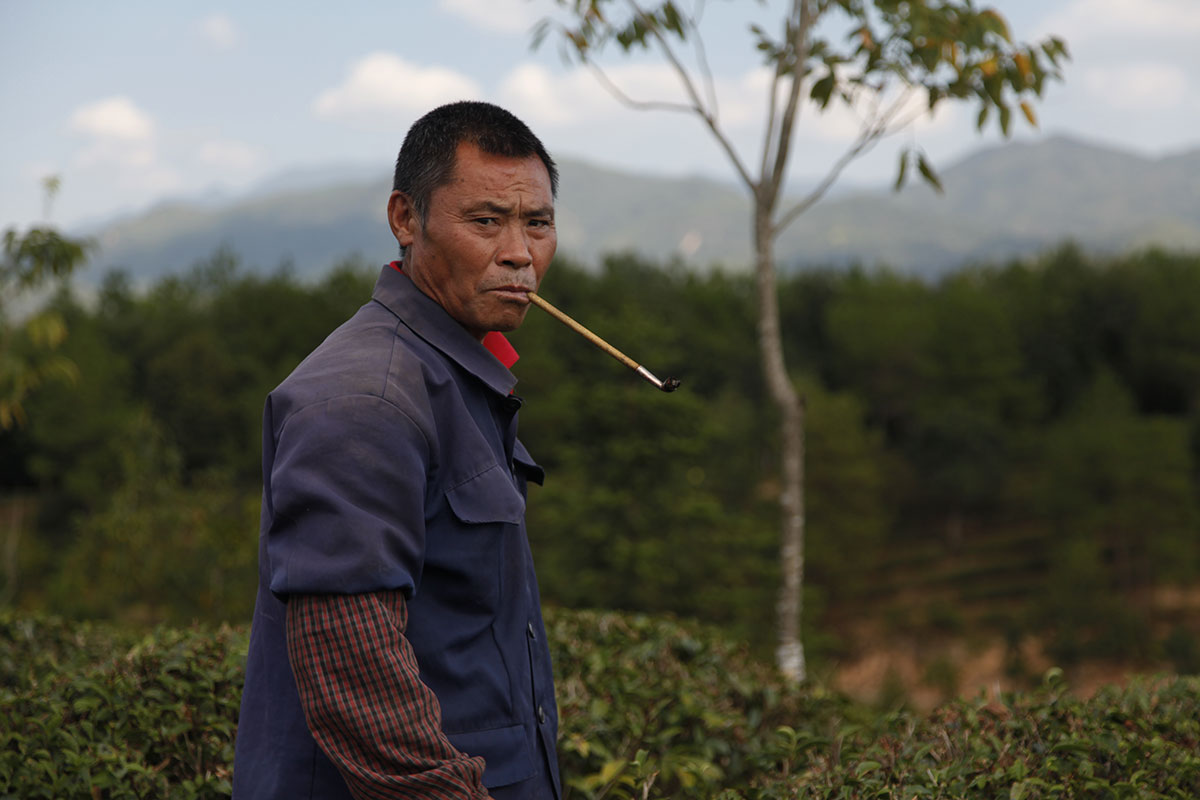In Hong Kong, the Lion Dance is performed at New Year, when the animal is paraded through the streets and shopping centers of the island. It plucks the “greens” (represented by fruit or vegetables) hung out for it in the doorway of each shop, then “spits them out” one by one while keeping hold of the associated envelope. The latter contains money for the dancers who animate the lion’s body. The shopkeepers don’t hand over their money in vain: the custom is believed to bring good luck. No doubt their business will flourish after this auspicious gesture.
China
The dark side of tea
With all the demonstrations and riots going on in France right now, these might seem like dark times. Tea has a dark side too. Pu-er cakes are made from fermented tea, or dark tea, as the Chinese called it over a thousand years ago. After the leaves are steamed, they are compressed into a brick, a cake, or a more rustic bird’s nest. These compressed teas improve with time. To drink them, you break the side of the block and the leaves crumble off. They can now be brewed, preferably in a gaiwan, several times in a row, until they have given us all they have to give.
Safety first
Just a few days ago, Léo and I had the pleasure of tasting a sensational tea sourced from southwest China. In fact, the variety was one of the famous ‘Yunnan buds’ that is going down a treat with tea lovers all over.
I thought it would be interesting to share with you the different stages of selecting a batch of tea.
Once the quantity we want has been decided, an order is placed. Because this is a small batch tea, it will be shipped by air. No sooner will the wheels touch the ground than a sample will be whizzed over to an independent lab for testing. Although not legally required to, Palais des Thés has made it policy to test any tea that has not been awarded French agriculture biologique certification, proof that is has been organically farmed. We are looking for over a hundred different molecules to confirm that the batch complies with European standards, known for being the most stringent in the world. Only if the tea passes muster will the leaves be distributed to our boutiques. It takes on average 4-6 weeks from when the tea is sampled to it being available to buy in store. A relatively long timeframe that Palais des Thés stands by because we understand the importance of guaranteeing food safety for the good of our customers’ health.
€378,000 per kilo
I am often asked how much a tea can fetch. The answer can be found this week on the Sotheby’s auction site, which lists a lot of rare dark teas for sale, the oldest of which dates back to the early 20th century. When compressed into a cake and well preserved, dark tea has the reputation of improving with time. On the famous auction house’s website, one of them is estimated at no less than 900,000 Hong Kong dollars for a 270g cake, which is €378,148 per kilo. If you’re interested, you will have to add the shipping costs to that amount, and don’t delay, as the auction ends on 16th December.
The good news is that a tea of this quality can be brewed several times.
Something for every taste
Attitudes are changing and this makes me happy. In the early days of Palais des Thés, Chinese teas really divided our customers. Some loved them, others hated them based on the premise that all Chinese teas were smoked to a greater or lesser extent. There was a lot of misunderstanding surrounding them. Thirty years later, it’s such a pleasure to see how things have changed. Not only do many people now realise that not all Chinese teas are smoked, but we have also seen the rise in popularity of green, white, blue-green, yellow, dark and black teas from this country, the birthplace of tea.
A walk in the woods
During lockdown, it can be easy to let ourselves go a bit. We might exercise less and put on weight. Could this be a good time to turn to tea? According to traditional Chinese medicine, one of the many properties attributed to our beloved Camellia sinensis is fat-burning. This remarkable quality is particularly true of dark teas, called Pu Erhs, with their powerful notes of undergrowth and humus. If you can’t take a walk in the woods, you can at least enjoy all the associated aromas in your cup – alongside those other supposed benefits.
The dark tea season
The winter in general and especially the festive season is an ideal opportunity to explore dark teas, which have been fermented. The best known come from Yunnan and are called Pu Erh. They are sold in loose-leaf form or compressed into cakes (see photo). Dark teas undergo a slow ageing process (sheng) or an accelerated one (shu). They are prepared in a teapot or a gaiwan (gong fu method). Pu Erhs give off powerful aromatic notes of wood, undergrowth, spices, damp earth and animal aromas. And if I add that these dark teas are popular in China to help ease the effects of overeating, you’ll understand why this is a good time of year to discover them!
Varying qualities of jasmine tea
In China, the best jasmine teas come from the Fujian region (photo). They are made using the finest green teas in the province, harvested in April. The jasmine flowers are picked between July and early September. But if we go by volume rather than quality, the biggest producing region is Guangxi. There, they use green tea of a lower quality, while their jasmine flowers from early May to the end of September, hence the high volume, which is double or triple that of Fujian.
Mr Huang, a displaced worker
Mr Huang is one of millions of Chinese workers who have decided to leave their native region to earn a living elsewhere. It is much easier to find work in the wealthier coastal provinces than in the interior of the country. So every year, Mr Huang leaves Guizhou, where he was born, and where he grows vegetables in a mountain village, and travels to the Wuyi Mountains in Fujian. There, inhabitants’ incomes have increased significantly, and people no longer want to work in the fields, preferring to live in the city. So Mr Huang goes there to work on a wonderful organic plantation. He tends to the tea plants and helps with the harvest from early March until the end of September, before returning to his family in his own province. And every year, he never hesitates to repeat this journey, for a monthly wage of 5,500 yuan.
Rare smoked teas
Smoked tea, or Lapsang Souchong, is a speciality of Fujian. It is not very popular with Chinese people, and so it is exported. European food safety regulations were tightened a few years ago, and it is now very difficult to find a smoked tea that meets those standards. This is not due to specific pesticides, but because of a molecule called anthraquinone that forms naturally during the smoking process. For several years I’ve been encouraging a number of farmers to modify their smoking technique so that their tea can be approved. This is a slow, ongoing process, but there have been some positive results.

